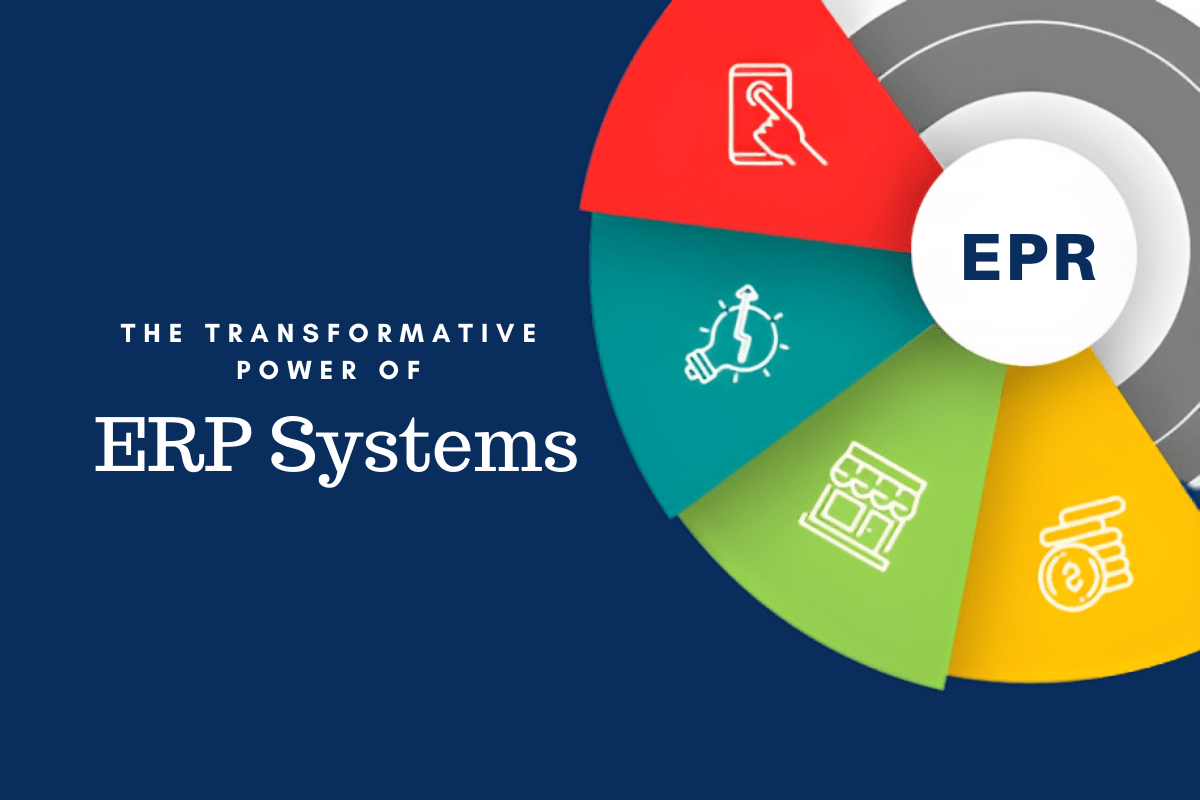Unlocking the Transformative Power of ERP Systems: A Comprehensive Guide to Benefits and Urgency
In today’s fiercely competitive business landscape, organizations are constantly seeking ways to streamline operations, enhance efficiency, and gain a competitive edge. Enterprise Resource Planning (ERP) systems have emerged as a cornerstone of modern business strategies, offering a comprehensive suite of integrated applications that seamlessly connect various aspects of an organization’s operations. By harnessing the power of ERP, businesses can unlock a wealth of benefits that empower them to navigate the complexities of the digital age and achieve sustainable growth.
Understanding the Value Propositions of ERP
ERP systems are designed to provide businesses with a centralized platform that unifies disparate data and processes across multiple departments, including finance, supply chain management, human resources, and customer relationship management. This holistic approach offers a multitude of value propositions that can transform the way businesses operate:
- Enhanced Data Integrity and Accuracy: ERP systems establish a single source of truth for all critical business data, eliminating the risk of data inconsistencies and errors that can arise from using multiple standalone systems.
- Improved Collaboration and Communication: By providing a shared platform for data and processes, ERP systems foster seamless collaboration among different departments, breaking down silos and facilitating effective communication.
- Increased Efficiency and Productivity: Automated workflows and streamlined processes reduce manual tasks and eliminate redundancies, enabling organizations to operate more efficiently and productively.
- Enhanced Decision-Making: ERP systems provide real-time visibility into key performance indicators (KPIs) and comprehensive reporting capabilities, empowering decision-makers with data-driven insights to make informed decisions.
- Improved Customer Service: Integrated CRM modules within ERP systems enable businesses to manage customer interactions effectively, track customer history, and provide personalized experiences.
- Reduced Costs and Improved Profitability: The efficiencies gained through ERP implementation can lead to significant cost savings in various areas, including labor, inventory, and IT maintenance.
- Enhanced Compliance and Risk Management: ERP systems help businesses comply with industry regulations and standards, mitigate risks, and ensure data security.

Identifying the Pain Points of Your Ideal Customer Persona
To effectively showcase the value of your ERP product/service to your ideal customer persona, it is crucial to understand their specific pain points and challenges. Common pain points experienced by businesses that can be addressed by ERP systems include:
- Inefficient and Error-Prone Processes: Manual and disconnected processes lead to delays, errors, and inefficiencies, hindering productivity and accuracy.
- Lack of Data Visibility and Accessibility: Disparate data sources and limited access to real-time information make it difficult for businesses to make informed decisions.
- Poor Collaboration and Communication: Siloed departments and fragmented communication channels hinder effective collaboration and decision-making.
- High Costs and Low Profitability: Inefficient operations, redundant tasks, and lack of cost control impact profitability and competitiveness.
- Compliance and Risk Challenges: Manual processes and fragmented data increase the risk of non-compliance and data breaches.

The Benefits of ERP: A Comprehensive Overview
1. Streamlined Operations and Enhanced Efficiency
ERP systems automate and streamline business processes, eliminating manual tasks, reducing redundancies, and improving overall operational efficiency. Automated workflows, integrated data, and real-time visibility enable organizations to operate more smoothly and effectively.
2. Improved Data Integrity and Accuracy
ERP systems establish a single source of truth for all critical business data, ensuring data integrity and accuracy across the organization. This eliminates the risk of data inconsistencies and errors that can arise from using multiple standalone systems.
3. Enhanced Collaboration and Communication
By providing a shared platform for data and processes, ERP systems foster seamless collaboration among different departments, breaking down silos and facilitating effective communication. Real-time data sharing and integrated communication tools enable teams to work together more efficiently.
4. Increased Productivity and Reduced Costs

The efficiencies gained through ERP implementation can lead to significant cost savings in various areas, including labor, inventory, and IT maintenance. Automated workflows, streamlined processes, and improved data accuracy reduce the need for manual labor, minimize waste, and optimize resource utilization.
5. Enhanced Decision-Making and Strategic Planning
ERP systems provide real-time visibility into key performance indicators (KPIs) and comprehensive reporting capabilities, empowering decision-makers with data-driven insights to make informed decisions. This enables organizations to identify trends, analyze performance, and develop effective strategies for growth.
6. Improved Customer Service and Relationship Management
Integrated CRM modules within ERP systems enable businesses to manage customer interactions effectively, track customer history, and provide personalized experiences. This enhances customer satisfaction, strengthens relationships, and drives repeat business.
7. Reduced Risk and Improved Compliance
ERP systems help businesses comply with industry regulations and standards, mitigate risks, and ensure data security. Automated compliance checks, audit trails, and robust security measures reduce the risk of non-compliance, data breaches, and financial losses.
The Urgency of ERP Implementation
In today’s rapidly evolving business environment, organizations cannot afford to delay the implementation of an ERP system. The benefits of ERP are undeniable, and businesses that fail to embrace this transformative technology risk falling behind their competitors and missing out on significant opportunities for growth.
1. The Growing Complexity of Business Operations
The complexity of business operations is increasing exponentially due to factors such as globalization, technological advancements, and regulatory changes. ERP systems provide the integrated platform and comprehensive functionality required to manage this complexity effectively.
2. The Need for Real-Time Data and Insights
In the digital age, businesses need real-time access to accurate data and insights to make informed decisions. ERP systems provide this real-time visibility, enabling organizations to respond quickly to changing market conditions and customer demands.
3. The Rising Cost of Manual Processes
Manual and disconnected processes are becoming increasingly costly and inefficient. ERP systems automate and streamline these processes, reducing labor costs, minimizing errors, and improving productivity.
4. The Importance of Compliance and Risk Management
Non-compliance with industry regulations and data breaches can have severe financial and reputational consequences. ERP systems help businesses mitigate these risks by providing automated compliance checks, audit trails, and robust security measures.
5. The Competitive Advantage of ERP
Organizations that implement ERP systems gain a competitive advantage by improving their operational efficiency, enhancing their decision-making capabilities, and providing superior customer service. This advantage can lead to increased market share, higher profitability, and long-term success.
Advantages and Disadvantages of ERP Implementation
Advantages:
- Improved operational efficiency: ERP systems streamline processes, automate tasks, and provide real-time visibility, leading to increased productivity and cost savings.
- Enhanced data accuracy and integrity: ERP systems establish a single source of truth for all business data, eliminating errors and inconsistencies.
- Improved collaboration and communication: ERP systems provide a centralized platform for data sharing and communication, fostering collaboration among different departments.
- Increased agility and responsiveness: ERP systems enable businesses to respond quickly to changing market conditions and customer demands by providing real-time insights and automating processes.
- Enhanced decision-making: ERP systems provide comprehensive reporting and analytics capabilities, empowering decision-makers with data-driven insights.
Disadvantages:
- High implementation costs: ERP systems can be expensive to implement, requiring significant upfront investment in software, hardware, and consulting services.
- Complexity and time-consuming implementation: ERP implementations are complex and time-consuming, requiring careful planning, data migration, and user training.
- Resistance to change: Some employees may resist the implementation of an ERP system, fearing job displacement or disruption to their workflows.
- Customization challenges: ERP systems may not be able to fully accommodate the unique requirements of every business, requiring customization which can be costly and time-consuming.
- Data security concerns: ERP systems store vast amounts of sensitive data, raising concerns about data security and privacy.
Summary of ERP Benefits
ERP systems offer a wide range of benefits that can transform the way businesses operate, including:
- Streamlined operations and enhanced efficiency
- Improved data integrity and accuracy
- Enhanced collaboration and communication
- Increased productivity and reduced costs
- Enhanced decision-making and strategic planning
- Improved customer service and relationship management
- Reduced risk and improved compliance
Q&A on ERP Benefits
1. How can ERP systems improve operational efficiency?
ERP systems streamline processes, automate tasks, and provide real-time visibility, leading to increased productivity and cost savings.
2. How do ERP systems ensure data accuracy and integrity?
ERP systems establish a single source of truth for all business data, eliminating errors and inconsistencies.
3. How do ERP systems enhance collaboration and communication?
ERP systems provide a centralized platform for data sharing and communication, fostering collaboration among different departments.
4. How do ERP systems help businesses make better decisions?
ERP systems provide comprehensive reporting and analytics capabilities, empowering decision-makers with data-driven insights.
5. How do ERP systems improve customer service?
ERP systems provide integrated CRM modules that enable businesses to manage customer interactions effectively, track customer history, and provide personalized experiences.
6. How do ERP systems reduce risk and improve compliance?
ERP systems help businesses comply with industry regulations and standards, mitigate risks, and ensure data security through automated compliance checks, audit trails, and robust security measures.
7. What are the potential disadvantages of ERP implementation?
Potential disadvantages include high implementation costs, complexity and time-consuming implementation, resistance to change, customization challenges, and data security concerns.
8. How can businesses overcome the challenges of ERP implementation?
Careful planning, data migration, user training, customization, and robust security measures can help businesses overcome the challenges of ERP implementation.
9. What industries can benefit from ERP implementation?
ERP systems can benefit businesses in a wide range of industries, including
